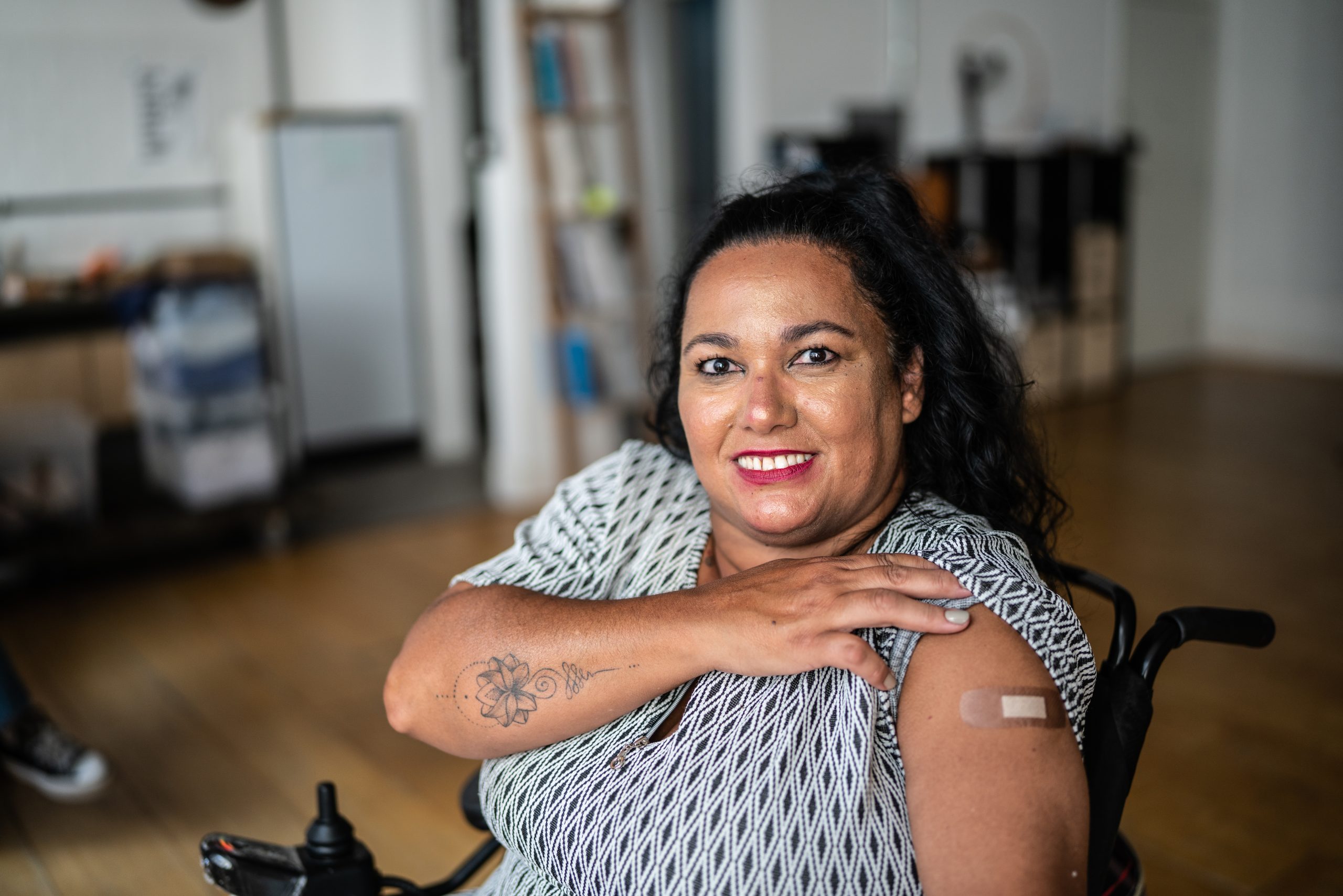Menu
- Home
- Ask Our Pharmacist
- Your EFAP
- Your Wellness
- Workplace Wellness
- Get Help Now
close

Herpes Zoster, also known as shingles, is a viral infection caused by the varicella-zoster virus, the same virus that causes chickenpox. Once a person has chickenpox, the virus stays in their body and can reactivate later in life and cause shingles. Most people who develop shingles only have it once during their life, but in some instances, it may occur up to two-to-three times in a lifetime.
It’s thought that shingles can appear when the immune system is weakened, but other possible causes may include:
Shingles triggers a painful rash or small blisters on an area of skin. It can appear anywhere on the body, but it typically appears on one side of the face, neck, or lower back. Most individuals will fully recover within 2-6 weeks after the initial symptoms begin.
At its worst, shingles can leave scarring or cause vision loss if the rash is on your face. The most frequent complication of shingles is post-herpetic neuralgia (PHN), which is long-term and often debilitating nerve pain, lasting for more than 90 days from the onset of rash. Up to 15 per cent of individuals who develop shingles may develop longer-term complications related to PHN.
Any person who has had chicken pox is at risk of developing shingles. However, shingles occurs most frequently among older adults and immunocompromised people. Age is the most important risk factor: over two-thirds of the cases occur in individuals over 50 years of age. Your chance of getting shingles in your lifetime is approximately 30%.
There’s no cure for shingles. Early treatment with prescription antiviral drugs may speed healing and lower your risk of complications. They may also be used in combination with pain medications. If you suspect you may have shingles, it’s important to speak with your health care provider.
Shingrix® (Recombinant Zoster Vaccine, RZV) is currently the only vaccine authorized for use in Canada, for individuals over the age of 50. A previous vaccine named Zostavax®, first authorized in 2008, was discontinued in 2023.
If you are over 60 and were previously vaccinated with Zostavax® (one dose/injection), you may consider receiving Shingrix®, but you need to wait at least one year. Studies have shown that Shingrix® provides greater protection against this disease. Shingrix® is administered by intramuscular injection as two separate doses within two-to-six months of each other.
If you are under 50 and have never had or been immunized against chicken pox, you may want to consider getting the varicella vaccine—which is offered by Alberta Health Services, for free, at any public health or community health centre. In Alberta, routine childhood immunizations now include varicella (chicken pox), and the vaccine is recommended for adults who work with young children, people with cystic fibrosis, immunocompromised individuals, and those travelling to tropical climates.
There is no current recommendation for booster doses of either shingles vaccine. This is an area of ongoing research.
Even though you’ve had a previous shingles infection, you can get shingles again. Although this isn’t common, it is still possible. Getting vaccinated will help prevent potential recurrence and complications.
The information provided in this article is for personal use, reference, and education only. ASEBP does not provide medical advice. Before starting any medication or product, you should always consult with your pharmacist, health care provider, or call Alberta Health Link at 811.

Your ASEBP benefits cover the cost of the Shingrix® vaccine. Contact your local pharmacy to ask if they can administer the vaccine for you. You can use your Health Spending Account, if you have one, to cover the cost of injections administered at a pharmacy.
If you don’t have a pharmacy in your community that can administer the Shingrix® vaccine to you, contact your local public health or community health centre, or call Alberta Health Link at 811, for advice.